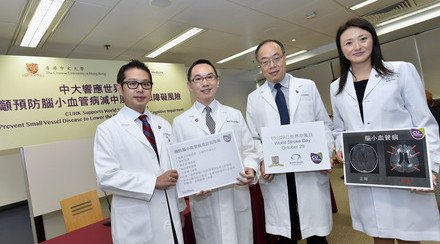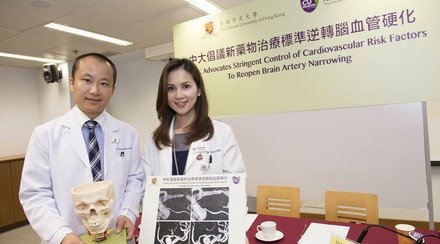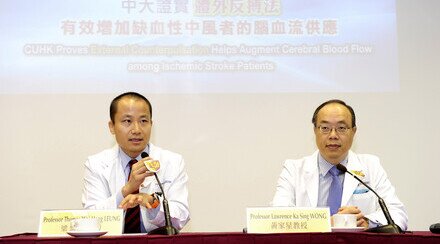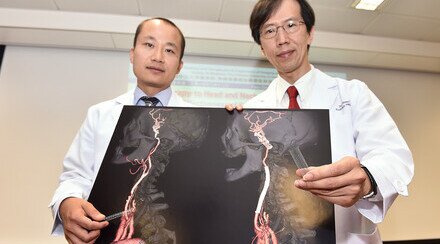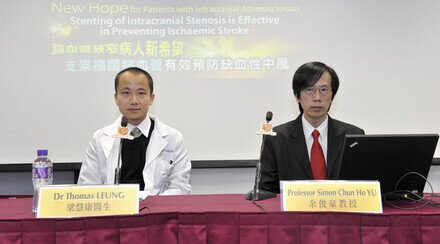CUHK New Research Reveals Better Efficacy of New Oral Anticoagulant for Stroke Prevention in Asian Patients with Atrial Fibrillation
A recent research led by Prof. Lawrence K.S. WONG, Mok Hing Yiu Professor of Medicine and Chief of Neurology at The Chinese University of Hong Kong (CUHK) reveals that the new oral anticoagulant, Rivaroxaban, is more effective than the traditional Warfarin in stroke prevention among Asian patients with atrial fibrillation (AF), and is more effective in Asian patients than in non-Asian patients.
AF is the most common form of cardiac arrhythmia. Irregular contraction of the patient’s heart may lead to poor blood flow, causing formation of clots in the left atrium. If a blood clot travels to the brain, a stroke will occur. An AF patient is five times more likely to have a stroke than a normal person, and therefore they should be prescribed anticoagulants to prevent clot formation.
According to a recent study by the Department of Medicine and Therapeutics of CUHK, AF has become one of the leading causes of stroke in Hong Kong, accounting for about one-fourth of all strokes. Yet, only 13% of AF patients suffering from stroke were treated with anticoagulants before the incidence, possibly because these patients have little knowledge about AF and its complications, and underestimate the risk of strokes they face. In addition, the limitations of the conventional anticoagulant Warfarin that the patients must avoid certain food and regularly receive blood tests for dose adjustment may have contributed to the underuse of anticoagulant.
Prof. Lawrence Wong studied the data of 932 Asian patients participating in the international large-scale study, ROCKET AF, which involved a total of 14,262 AF patients from 45 countries worldwide. After comparing the data of the 932 patients from mainland China, Hong Kong, Taiwan and South Korea, with that of non-Asian patients (mainly from Western countries), it is found that stroke incidence among Asian patients is 11% higher than that of non-Asians. In Professor Wong’s study, half of the patients were treated with the new oral anticoagulant Rivaroxaban, and the rest was prescribed the conventional Warfarin. Results showed that Warfarin is relatively less effective in Asian patients, with only 47% of patients treated with Warfarin staying within the targeted therapeutic range compared with 55% for non-Asians. In addition, Asian patients taking Warfarin were found to have higher rate of stroke and bleeding complication.
The study also revealed that Rivaroxaban could reduce the risk of stroke by 32% among Asian AF patients but only 11% in non-Asians. Rivaroxaban is also safer for Asians as the rate of intracranial hemorrhage is 73% lower than Warfarin (0.6% in the Rivaroxaban group and 2.5% in the Warfarin group).
Professor Wong concluded that novel oral anticoagulants are more convenient to use, safer and probably more effective than Warfarin, especially among Asian patients. These new drugs should become the first line treatment for AF patients with high risk of stroke.
.jpg)
Prof. K.S. Wong (left), Chief of Neurology, CUHK, and Dr. Yannie Soo, Assistant Professor (Honorary), Department of Medicine and Therapeutics, CUHK, share the findings of the latest research on the new oral anticoagulant.
.jpg)
Comparison between the new oral anticoagulant Rivaroxaban and the traditional Warfarin.






